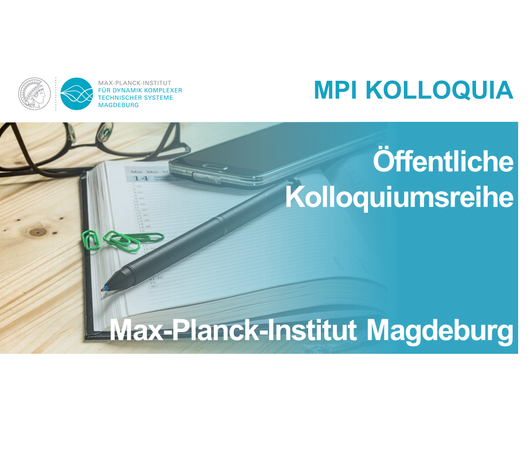MPI Kolloquiumsreihe: Prof. Dr. rer. nat. Axel Lehrer, University of Hawaiʻi at Mānoa: Protein Potential: Rapid Development of Thermostable Vaccines using Insect Cell expressed recombinant Viral Proteins
MPI Kolloquiumsreihe: Prof. Dr. rer. nat. Axel Lehrer, University of Hawaiʻi at Mānoa
- Datum: 22.02.2024
- Uhrzeit: 14:00 - 16:00
- Vortragende(r): Prof. Dr. rer. nat. Axel Lehrer
- Associate Professor, Department of Tropical Medicine, Medical Microbiology and Pharmacology: University of Hawaii at Manoa
- Ort: Max-Planck-Institut Magdeburg
- Raum: Großer Seminarraum "Prigogine"
- Gastgeber: MPI Forschungskoordination
- Kontakt: oelbermann@mpi-magdeburg.mpg.de

Das Max-Planck-Institut Magdeburg lädt Sie herzlich zu seiner öffentlichen Kolloquiumsreihe ein.
Hochrangige WissenschaftlerInnen verschiedener Fachgebiete aus renommierten Forschungseinrichtungen aus Deutschland und weltweit präsentieren ihre Forschungsarbeit.
Einwahl per Zoom: https://eu02web.zoom-x.de/j/7302508065
Abstract
Access to high quality viral antigens in sufficient quantities enables both basic and translational research into emerging and re-emerging infectious diseases and further facilitates the development of diagnostics, therapeutics and vaccines. The use of stably transformed insect cell lines has proven to be an elegant solution to the production of a number of viral antigens. This has led to the development of recombinant subunit vaccine candidates efficacious in non-human primates against infection with Ebola virus and other filoviruses, but also for flaviviruses such as Dengue virus, Tick-borne Encephalitis Virus (TBEV) and Zika virus (ZIKV), as well as for SARS-CoV-2.
Renewed interest in emerging and re-emerging mostly viral diseases was triggered by local and global public health emergencies such as those caused by SARS-CoV (2003), Avian Influenza H5N1 (2005), Swine Flu H1N1 (2009) and Ebola virus in West Africa (2013-2016). This helped to advance development of a variety of vaccine platforms including ours and was instrumental to fulfill the need of rapid development of vaccines in response to the COVID-19 pandemic.
To introduce the Drosophila vaccine platform, I will first discuss the development of vaccines against Ebola and other filoviruses including the possibility of generating multivalent formulations, discuss thermostability as an important design feature, and then use examples of Zika virus and COVID-19 vaccines to demonstrate how our platform approach can be streamlined to shorten development timelines, even in an academic setting.
Über den Sprecher (Website)
Dr. Lehrer is a Vaccinologist in the Department of Tropical Medicine, Medical Microbiology, and Pharmacology at the John A. Burns School of Medicine, University of Hawaii. He earned his Diploma in biochemistry and doctorate in biology from the University of Bayreuth. From 2002-2013 he worked as a scientist in vaccine development in small biotech companies (Hawaii Biotech and Panthera Biopharma) and since 2013 he has been faculty at the University of Hawaii. The main focus of his research is the preclinical development of recombinant subunit vaccines mainly against flaviviruses and filoviruses including defining potential correlates of protection and a better understanding of how natural immunity develops to infectious diseases. The latter part involves development and deployment of seroepidemiological assays in areas endemic for filoviruses as well as other emerging infectious diseases.